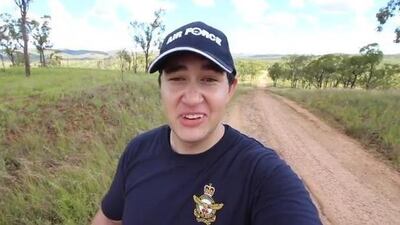The Australian government has been forced to review its use of online influencers after a series of embarrassing revelations emerged about some of the social media stars who have featured in official campaigns.
Following an investigation last month by The Daily Telegraph in Sydney, it was revealed that a number of people paid by the government to take part in their campaigns had previously promoted alcohol brands and dieting pills. Others were found to have made homophobic remarks and jokes about sexual assault online.
“The government has recently reviewed the use of social media influencers and determined that they will not be used in future campaigns,” said David Coleman, assistant minister for finance.
The Australian government has spent more than $700,000 (Dh1.8 million) on social media campaigns in the past 18 months.
___________________________
Read more:
Why 'influencer' isn't always a dirty word and Huda Kattan transcends it
Social media influencers covered by Abu Dhabi's new company licence programme
UAE social media influencer law: two licences costing Dh30,000 now needed
___________________________
One of the highest profile of these was the #girlsmakeyourmove campaign, which was launched in 2016. It was created to encourage women to do more exercise and featured hundreds of influencers posting fitness videos on their Instagram accounts.
Health minister Greg Hunt described the revelations that some of these influencers also promoted potentially harmful products as “offensive” and immediately ordered an investigation.
The report in The Daily Telegraph also revealed that the Australian Defence Force had spent $52,000 (Dh140,000) on two YouTube stars, Alen Catak and Elliott Watkins. Catak was found to have made homophobic and anti-Semitic remarks online, as well as using derogatory language about women, while Watkins had laughed at rape references via his social media accounts.
The news is yet another warning about the risks of using online influencers as a promotional tool. Last month, Kuwaiti influencer Sondos Al Qattan was dropped by a number of brands after she complained to her 2.3 million Instagram followers about new laws, which allowed Filipino workers in Kuwait to keep their passports and have a day off. Hair brand Phyto posted on its Instagram on Tuesday that it was "very surprised and troubled when hearing about the cruel comments", adding, "we do not tolerate any kind of racism and abuse", and calling her actions "dreadful".
And last year, Felix Kjellberg, who has 60 million subscribers on YouTube, was forced to apologise for a series of anti-Semitic remarks that had appeared in his videos. A lesson to anyone hoping to harness the power of social media to promote their brand: do your research.


